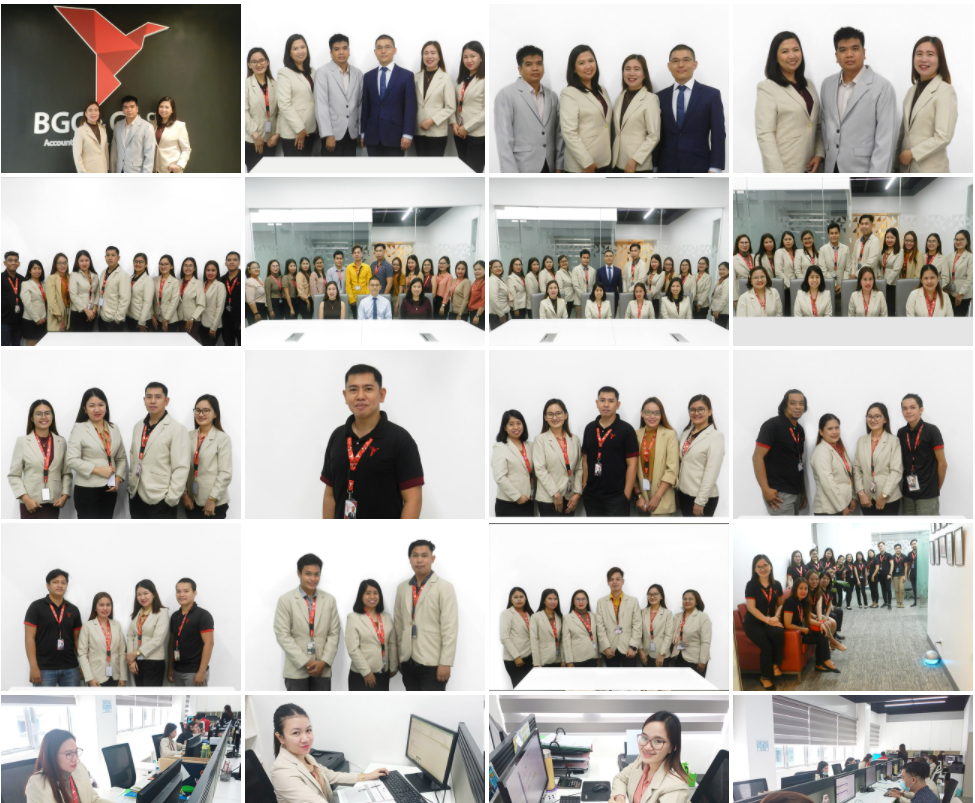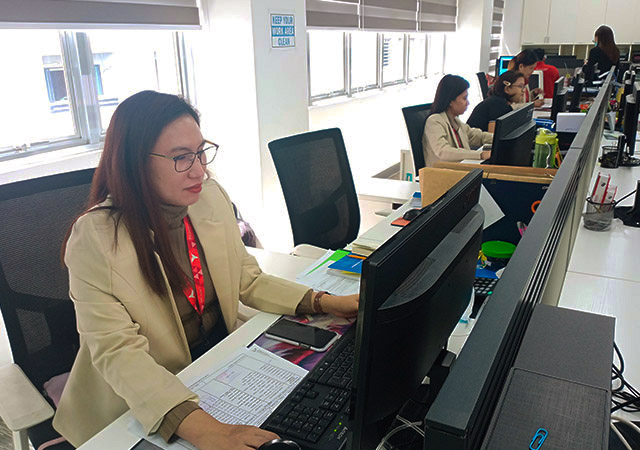Complete Guide on How to Register a Business in the Philippines 2022-2023

Complete Guide on How to Register a Business in the Philippines 2022-2023
Local and foreign investors seeking to set up a company in the Philippines can choose among six types of corporations, namely:
For those seeking to establish a local company:
- Domestic Corporation
- One Person Corporation
For existing foreign corporations seeking to expand operations in the Philippines:
- Branch Office
- Representative Office
- Regional Headquarters (RHQ)
- Regional Operating Headquarters (ROHQ)
Types of Corporations in the Philippines
| Types of Corporation | Definition | Setup Requirements | Capital Requirements | Restrictions | Registration Timelines |
|---|---|---|---|---|---|
| Domestic Corporation | A business entity incorporated in the Philippines with a legal entity separate from its stockholders (similar to a Private Limited Company or Limited Liability Company) | At least 2 incorporators Corporate Secretary Corporate Treasurer A registered office address | 100% Filipino-owned or 60% Filipino and 40% foreign owned:P5,000 or US$100 With more than 40% foreign ownership: US$200,000* | Those with foreign ownership are restricted to participate in areas of investment included in the FINL** | 3 to 6 months |
| One Person Corporation (OPC) | A business entity incorporated in the Philippines with a single stockholder whose liability is limited to the extent of their assets | Single Stockholder (must be a person) 1 Nominee Director 1 Alternate Nominee Stockholder A registered office address | Filipino single stockholder:P5,000 or US$100 Foreign single stockholder(where more than 60% of revenue is from foreign sources):P5,000 or US$100 Foreign single stockholder(where more than 60% of revenue is from domestic market):US$200,000* | Foreign-owned OPCs are restricted to participate in areas of investment included in the FINL** | 2 to 3 months |
| Branch Office | A legal extension of a foreign corporation seeking to generate income in the Philippines by carrying out their business activities into the country | 1 Resident Agent A registered office address | US$200,000 Annual deposit of P500,000 (with annual increase of 2% of revenue in excess of P10M) | Can only be set up by a foreign corporation No separate legal entity from its parent company | 3 to 6 months |
| Representative Office | A legal extension of a foreign corporation seeking to establish a liaison office, contact center, or marketing hub in the Philippines | 1 Resident Agent A registered office address | US$30,000 every year to support operations | Can only be set up by a foreign corporation Not allowed to:
No separate legal entity from its parent company | 6 to 10 weeks |
| Regional Headquarters (RHQ) | A legal extension of a foreign corporation seeking to set up a contact center or back office in the Philippines to supervise, inspect, or coordinate the administrative functions of its associated entities worldwide | 1 Resident Agent A registered office address | US$50,000 every year to support operations | Can only be set up by a foreign corporation with branches, subsidiaries, or affiliates worldwide Not allowed to:
No separate legal entity from its parent company | 6 to 10 weeks |
| Regional Operating Headquarters (ROHQ) | A legal extension of a foreign corporation seeking to set up a service center in the Philippines to perform income-generating business activities to its associated entities worldwide | 1 Resident Agent A registered office address | US$200,000 every year to support operations | Can only be set up by a foreign corporation with branches, subsidiaries, or affiliates worldwide Not allowed to:
| 6 to 10 weeks |
*Can be reduced to US$100,000 if the company will engage in activities involving advanced technology or employ at least 50 direct employees. (Fore branch office, if it seeks to be an export-oriented enterprise that exports 60% or more of its gross sales, it can be registered with as little as P5,000.)
**The Foreign Investments Negative List – a list of economic sectors where foreign ownership and participation are prohibited or limited.
Domestic Corporation
The most common type of corporation in the Philippines, a Domestic Corporation is the local equivalent of a Private Limited Company (PLC) or Limited Liability Company (LLC) in other countries.
A Domestic Corporation is a business entity incorporated, recognized, and operating in the Philippines. Its legal entity is separate from its stockholders and/or its associated corporations. Thus, they can only be held liable to the extent of their contribution to the capital.
Basic Requirements on How to Register a Domestic Corporation in the Philippines
Setup Requirements
- At least 2 and a maximum of 15 stockholders (also known as incorporators). Each stockholder must subscribe to at least one share of the capital stock. Majority of these stockholders must be residents of the Philippines (not necessarily citizens).
- Proof of official business address. This is not required for registering with the Securities and Exchange Commission (SEC), but mandatory for the Bureau of Internal Revenue (BIR) and local government units (LGUs). Alternatively, you have the option to rent a virtual office as your business address during the registration process. You can transfer to a physical office thereafter and update your office address.
Corporate Officers
Domestic Corporations in the Philippines are required to have at least three officers:
- President
- Corporate Secretary
- Treasurer
The President can be a foreign national not residing in the Philippines. But s/he must be a director holding at least one share of the capital stock. The Corporate Secretary must be a Filipino citizen. The Treasurer can be a foreign national but must reside in the Philippines.
Minimum Capital Requirements
Wholly Filipino-owned Domestic Corporations have a minimum capital requirement of ₱5,000 or US$100. Domestic Corporations with 60% Filipino-40% foreign ownership also have the same capital requirement.
Those with more than 40% foreign ownership are required to have a minimum paid-up capital of US$200,000. This amount can be reduced to US$100,000 if the corporation will engage in activities involving advanced technology or employ at least 50 direct employees.
Restrictions
Domestic Corporations with foreign ownership are restricted to participate in areas of investment included in the Foreign Investments Negative List (FINL) — a list of economic sectors where foreign ownership and participation are prohibited or limited.
Documentary Requirements
- Articles of Incorporation and Bylaws (must be notarized)
- Company Name Verification Slip (you are required to reserve your company name before starting the registration process)
- Tax Identification Number (TIN) of Filipino incorporators, directors, and other officers
- Tax Identification Number (TIN) or Passport Number of foreign incorporators, directors, and other officers
- Valid IDs of incorporators, directors, and other officers
- Contract of Lease (if rented) or Certificate of Land Title (if owned) of your registered office address
Steps on How to Register a Domestic Corporation in the Philippines
- Register company name with SEC online
- Prepare documents for submission to SEC
- Obtain the following business permits/clearances from the local government unit (LGU) where the company will be located:
- Barangay Clearance
- Mayor’s Permit
- Business Permit to Operate
- Register with the BIR to obtain the following:
- BIR Certificate of Registration
- Certificate of Registration of Books of Accounts
- Cash Register Machine (CRM) or Point of Sale Machine (POS) or Authority to Print Receipts/Invoices (Manual Receipts)
- If you will hire local employees, you need to register as an employer with the following government agencies:
- Department of Labor and Employment (DOLE)
- Social Security System (SSS)
- Philippine Health Insurance Corporation (PhilHealth)
- Home Development Mutual Fund (Pag-IBIG Fund)
One Person Corporation
A One Person Corporation (OPC) is a business entity with a single stockholder. The single stockholder is also the incorporator, sole director, and president. Their liability to the OPC is limited to the extent of their assets.
Basic Requirements on How to Register a One Person Corporation in the Philippines
Setup Requirements
- Single stockholder. Only the following can set up an OPC: 1) natural person of legal age (local or foreign); 2) trust (does not refer to a trust entity, but to the subject being managed by a trustee); and 3) estate. A foreign national can set up an OPC, but they are subject to restrictions in areas of investment partially or wholly reserved to Filipino citizens under the Foreign Investments Negative List (FINL).
- Nominee Stockholder and Alternate Nominee Stockholder. Both individuals must be indicated in the Articles of Incorporation to replace the single stockholder if they die or become incapacitated to operate the OPC.
- Proof of official business address. This is not required for registering with the Securities and Exchange Commission (SEC), but mandatory for the Bureau of Internal Revenue (BIR) and local government units (LGUs). Alternatively, you have the option to rent a virtual office as your business address during the registration process. You can transfer to a physical office thereafter and update your office address.
Corporate Officers
The single stockholder must appoint the following within 15 days from the date of incorporation:
- Corporate Secretary
- Treasurer
The Corporate Secretary must be a Filipino citizen while the Treasurer can be a resident of the Philippines, but not necessarily a citizen.
The role of the Corporate Secretary cannot be taken by the single stockholder, but they can assume the role of the Treasurer if they submit a surety bond to the Securities and Exchange Commission (SEC). The basis for the amount of the bond is the company’s authorized capital stock.
| Authorized Capital Stock (in P) | Surety Bond Coverage (in P) |
|---|---|
| 1 to 1,000,000 | 1,000,000 |
| 1,000,001 to 2,000,000 | 2,000,000 |
| 2,000,001 to 3,000,000 | 3,000,000 |
| 3,000,001 to 4,000,000 | 4,000,000 |
| 4,000,001 to 5,000,000 | 5,000,000 |
| 5,000,001 and above | Surety bond coverage is equal to the authorized capital stock of the OPC |
Minimum Capital Requirements
Filipino-owned OPCs have a minimum capital requirement of ₱5,000 or US$100. Foreign-owned OPCs, specifically those where more than 60% of revenue is from foreign sources, also have a minimum capital requirement of ₱5,000 or US$100. Conversely, foreign-owned OPCs where 60% of revenue is from domestic sources have a minimum capital requirement of US$200,000.
Restrictions
The following are not allowed to incorporate an OPC:
- Natural persons licensed to exercise a profession**
- Banks, non-bank financial institutions, and quasi-banks
- Pre-need, trust, and insurance companies
- Non-chartered Government-Owned and/or Controlled Corporations (GOCCs)
- Public and publicly-listed companies
**If the purpose of setting up an OPC is to exercise their profession.
Documentary Requirements
Entities seeking to incorporate an OPC must submit the following documents to SEC:
- Articles of Incorporation (Natural Person, Trust, or Estate)
- Written Consent from the Nominee and Alternate Nominee
- Other requirements (if applicable):
- Proof of Authority to Act on Behalf of the Trust or Estate (for trusts and estates incorporating as OPC)
- Foreign Investments Act (FIA) Application Form (for foreign natural persons)
- Affidavit of Undertaking to Change Company Name (in case not indicated in the Articles of Incorporation)
- Tax Identification Number (TIN) of Filipino single stockholder
- Tax Identification Number (TIN) or Passport Number of foreign single stockholder
Steps on How to Register a One Person Corporation in the Philippines
All applicants for registering an OPC must be filed manually with SEC’s Company Registration and Monitoring Department (CRMD).
- Reserve and submit your proposed company name
- Submit the documentary requirements for pre-processing
- Pay the filing fees
- Submit hard copies of signed and notarized documentary requirements together with the proof of payment of filing fees
- Claim Certificate of Registration from SEC
Applicants with rejected company names should submit a Letter of Appeal to SEC. Additionally, within 15 days from the issuance of the Certificate of Registration, the single stockholder must appoint a treasurer, corporate secretary, and other officers. They must notify SEC of the appointment within 5 days thereafter.
Branch Office
Foreign corporations seeking to generate income in the Philippines by carrying out their business activities into the country can set up a Branch Office. It does not have a separate legal entity from its parent company and the laws governing its formation, existence, and dissolution are the laws of the country where its parent company was incorporated. With no separate legal entity, the parent company will incur all its liabilities.
Basic Requirements on How to Register a Branch Office in the Philippines
Setup Requirements
- Resident Agent. The foreign parent company is required to appoint a Resident Agent who shall receive summons and other legal proceedings served to or against the Branch Office in the Philippines. The resident agent can be an individual residing in the Philippines or a domestic corporation lawfully doing business in the country. If an individual, s/he must be of good moral character and sound financial standing. If a corporation, it must be fully compliant with SEC and have sound financial standing.
- Proof of official business address. This is not required for registering with the Securities and Exchange Commission (SEC), but mandatory for the Bureau of Internal Revenue (BIR) and local government units (LGUs). Alternatively, you have the option to rent a virtual office as your business address during the registration process. You can transfer to a physical office thereafter and update your office address.
Minimum Capital Requirements
The minimum paid-up capital for setting up a Branch Office is US$200,000 but can be reduced to US$100,000 if it will engage in activities involving technology or employ at least fifty (50) employees. If it seeks to be an export-oriented enterprise that exports 60% or more of its gross sales, it can be registered with as little as ₱5,000.
The foreign parent company is required to annually deposit ₱500,000. If the Branch Office’s revenue exceeds ₱10M, the ₱500,000 deposit will have an annual increase of 2%.
Restrictions
A Branch Office can only be set up by a corporation that exists and operates in a country other than the Philippines.
Steps on How to Register a Branch Office in the Philippines
- Register with SEC to obtain a License to Do Business through a Branch Office
- Obtain business permits from the local government unit (LGU) where the Branch Office will be located:
- Barangay Clearance
- Mayor’s Permit
- Business Permit to Operate
- Register with the BIR to obtain the following:
- BIR Certificate of Registration
- Certificate of Registration of Books of Accounts
- Cash Register Machine (CRM) or Point of Sale Machine (POS) or Authority to Print Receipts/Invoices (Manual Receipts)
- If you will employ local employees, you need to register as an employer with the following agencies:
- Social Security System (SSS)
- Philippine Health Insurance Corporation (PhilHealth)
- Home Development Mutual Fund (Pag-IBIG Fund)
- Apply for Work Visa* (for foreign directors, executives, and employees)
*can be done right after obtaining the SEC license
Representative Office
Foreign corporations seeking to test their potential in the Philippine market before making any significant investments can establish a Representative Office. Similar to a Branch Office, it has no separate legal entity from its parent company, hence all its liabilities will be incurred by the latter. But unlike a Branch Office, it is not allowed to generate income within and outside the Philippines.
As a non-profit generating entity, it is only permitted by law to act as a liaison office, provide marketing/sales support to the parent company overseas, perform quality control of products for export, and/or conduct market research related to the parent company’s industry.
Basic Requirements on How to Register a Representative Office in the Philippines
Setup Requirements
- Resident Agent. The foreign parent company is required to appoint a Resident Agent who shall receive summons and other legal proceedings served to or against the Representative Office in the Philippines. The resident agent can be an individual residing in the Philippines or a domestic corporation lawfully doing business in the country. If an individual, s/he must be of good moral character and sound financial standing. If a corporation, it must be fully compliant with SEC and have sound financial standing.
- Proof of official business address. This is not required for registering with the Securities and Exchange Commission (SEC), but mandatory for the Bureau of Internal Revenue (BIR) and local government units (LGUs). Alternatively, you have the option to rent a virtual office as your business address during the registration process. You can transfer to a physical office thereafter and update your office address.
Minimum Capital Requirements
The minimum paid-up capital for setting up a Representative Office is US$30,000.
Restrictions
A Representative Office is not allowed to derive income and offer services to third parties. It is also not qualified to apply for tax incentives from the government.
Steps on How to Register a Representative Office in the Philippines
- Register with SEC to obtain a License to Do Business through a Representative Office
- Obtain business permits from the local government unit (LGU) where the Representative Office will be located:
- Barangay Clearance
- Mayor’s Permit
- Business Permit to Operate
- Register with the BIR to obtain a corporate tax number
- If you will employ local employees, you need to register as an employer with the following agencies:
- Social Security System (SSS)
- Philippine Health Insurance (PhilHealth)
- Home Development Mutual Fund (Pag-IBIG Fund)
- Apply for Work Visa* (for foreign directors, executives, and employees)
*can be done right after obtaining the SEC license
Regional Headquarters
A Regional Headquarters (RHQ) is an administrative branch of a foreign corporation allowed to supervise, inspect or coordinate its subsidiaries, branches, and affiliates around the world. It is also allowed to act as a communications center for all associated entities. It is not allowed to derive income and has no separate legal entity from its parent company.
Under legal conditions, it may source raw materials, market products, train employees or conduct research and development projects in the Philippines.
Basic Requirements on How to Register an RHQ in the Philippines
Setup Requirements
- Resident Agent. The foreign parent company is required to appoint a Resident Agent who shall receive summons and other legal proceedings served to or against the RHQ in the Philippines. The resident agent can be an individual residing in the Philippines or a domestic corporation lawfully doing business in the country. If an individual, s/he must be of good moral character and sound financial standing. If a corporation, it must be fully compliant with SEC and have sound financial standing.
- Proof of official business address. This is not required for registering with the Securities and Exchange Commission (SEC), but mandatory for the Bureau of Internal Revenue (BIR) and local government units (LGUs). Alternatively, you have the option to rent a virtual office as your business address during the registration process. You can transfer to a physical office thereafter and update your office address.
Minimum Capital Requirements
The minimum paid-up capital for setting up an RHQ in the Philippines is US$50,000.
Restrictions
An RHQ is not allowed to manage the operations of its parent company’s subsidiaries, branches, and/or affiliates. It is also not allowed to derive income and offer services to third parties. Additionally, it is prohibited from dealing directly or doing business with its parent company’s clients in the Philippines.
Its parent company is not permitted to sell or market products through the Philippine RHQ.
Steps on How to Register an RHQ in the Philippines
- Register with SEC to obtain a License to Do Business through a Regional Headquarters (RHQ)
- Obtain business permits from the local government unit (LGU) where the RHQ will be located:
- Barangay Clearance
- Mayor’s Permit
- Business Permit to Operate
- Register with the BIR to obtain a corporate tax number
- If you will employ local employees, you need to register as an employer with the following agencies:
- Social Security System (SSS)
- Philippine Health Insurance (PhilHealth)
- Home Development Mutual Fund (Pag-IBIG Fund)
- Apply for Work Visa* (for foreign directors, executives, and employees)
*can be done right after obtaining the SEC license
Regional Operating Headquarters
A Regional Operating Headquarters (ROHQ) is an extension of a foreign corporation allowed to derive income in the Philippines by performing qualifying services to its head office, affiliates, subsidiaries, and/or branches around the world. Similar to an RHQ, it does not have a separate legal entity from its parent company.
Basic Requirements on How to Register an ROHQ in the Philippines
Setup Requirements
- Resident Agent. The foreign parent company is required to appoint a Resident Agent who shall receive summons and other legal proceedings served to or against the ROHQ in the Philippines. The resident agent can be an individual residing in the Philippines or a domestic corporation lawfully doing business in the country. If an individual, s/he must be of good moral character and sound financial standing. If a corporation, it must be fully compliant with SEC and have sound financial standing.
- Proof of official business address. This is not required for registering with the Securities and Exchange Commission (SEC), but mandatory for the Bureau of Internal Revenue (BIR) and local government units (LGUs). Alternatively, you have the option to rent a virtual office as your business address during the registration process. You can transfer to a physical office thereafter and update your office address.
Minimum Capital Requirements
The minimum paid-up capital for establishing an ROHQ in the Philippines is US$200,000.
Restrictions
An ROHQ is not allowed to offer qualifying services to entities other than its parent company’s affiliates, branches, and/or subsidiaries. It is also not allowed to directly or indirectly solicit or market goods and services on behalf of its parent company, branches, affiliates, subsidiaries, and/or any other associated entity.
Steps on How to Register a ROHQ in the Philippines
- Register with SEC to obtain a License to Do Business through a Regional Operating Headquarters (ROHQ)
- Obtain business permits from the local government unit (LGU) where the ROHQ will be located:
- Barangay Clearance
- Mayor’s Permit
- Business Permit to Operate
- Register with the BIR to obtain a corporate tax number
- BIR Certificate of Registration
- Certificate of Registration of Books of Accounts
- Cash Register Machine (CRM) or Point of Sale Machine (POS) or Authority to Print Receipts/Invoices (Manual Receipts)
- If you will employ local employees, you need to register as an employer with the following agencies:
- Social Security System (SSS)
- Philippine Health Insurance (PhilHealth)
- Home Development Mutual Fund (Pag-IBIG Fund)
- Apply for Work Visa* (for foreign directors, executives, and employees)
*can be done right after obtaining the SEC license

BGC and Co. CPAs is a mid-sized progressive auditing firm providing comprehensive set of cost effective solutions to organizations like yours.
Our services include auditing, accounting, bookkeeping, business management, and HR consulting. Further, we provide other business services like VISA processing in Bureau of Immigration (BI), Philippine Retirement Authority (PRA).
We are equipped with state of art tools and techniques along with dedicated professional to evaluate potential opportunities and risks effective auditing and assurance services. We understand a value adding auditing and assurance service focus on scope of business improvement rather than merely preparing financial statements and reporting on figures.
The firm was formed to assist clients on the preparation of compliances relating to tax, financial management, forecasting and accounting software and system installation. Assist clients in tax investigations, internal auditing procedures and provide on financial, taxation, accounting and auditing matters when needed. Processing of business registration, cancellation / termination.
Our Mission
Deliver reliable cost effective professional services in time meeting specific customer requirements.
Our Vision
To become one of the best auditing and accounting firm in the Philippines providing the utmost satisfaction to all the clients. We would like to be known as one of the finest company to partnered with in all the aspects.
Our Team
Our teams of dedicated professionals led by senior qualified accountants are obliged to give you quality services which will enable you to serve your clients better and there by improve your business. We together with our associates enable to give you the best in the industry.
ABOUT OUR SERVICES
Auditing and Assurance
We are equipped with state of art tools and techniques along with dedicated professional to evaluate potential opportunities and risks delivering effective auditing & assurance services. We understand value adding auditing and assurance service focus on scope of business improvement rather than merely preparing financial statements and reporting on figures.
Our expertise in analyzing accounting systems, designing better systems with proper internal controls and management information reporting help our clients to adequately plan their business building strategy and give them the confidence to pace up with the rapidly growing economy.
Accounting and Bookkeeping

Accounting and bookkeeping is a necessity of every organization irrespective of its size. Our professionally qualified and experienced accountants understand and analyze business transactions and ensure compliance with the accounting standards. BGC has well trained staff familiar with many of the accounting system and most especially to the rapid changes in the BIR rules and regulations. Qualitative and timely accounting reports are crucial for the success of any business organization. BGC ensures relevant and reliable financial reports are delivered on regular intervals to assess performance and to facilitate decision making. Outsourcing of accounts department helps you to get professional expertise at lower cost and BGC provides the most efficient and effective bookkeeping solutions.
We assist you with below services:
• Accounts preparation and supervision
• Preparation and presentation of financial reports
• Bookkeeping services
• Payroll processing
• Training of accounting staff
Business Set-up and Termination
We do assist in setting up different types of business organizations through registrations to different government agencies such as:
• Securities and Exchange Commission (SEC);
• Bureau of Internal Revenue (BIR);
• Local Government Unit (LGU);
• Department of Trade and Industry (DTI);
• Social Security System (SSS);
• Philippine Health Insurance (Philhealth);
• Pag ibig;
• Food and Drug Administration (FDA)
We also assist our foreigner clients for the following:
• VISA extension;
• Bureau of Internal Revenue (BIR);
• 9g VISA;
• Special Resident Retiree’s VISA (SRRV)
• Social Security System (SSS);
• Passport Renewal
SERVICES
CONTACT US
ADDRESS
- 7TH FLOOR, PCCI CORPORATE CENTER, L.P. LEVISTE ST., SALCEDO VILLAGE, BRGY. BEL-AIR MAKATI, PHILIPPINES 1209
- Info@bgcco.ph
- lconvento@bgcco.ph
- Working Hours : 8:00 a.m - 5:00 p.m
PROFILE
AUTHORIZED INSTITUTION
想了解更多欢迎联系和咨询我们,中文 微信BGC998 电报@BGC998
想了解更多欢迎联系和咨询我们,微信BGC998 电报@BGC998
更多推荐阅读:
